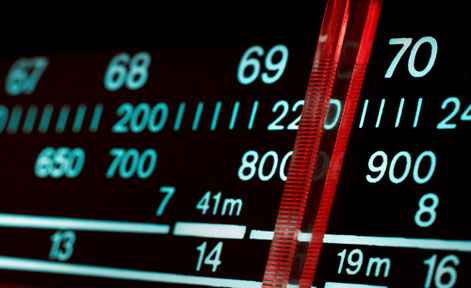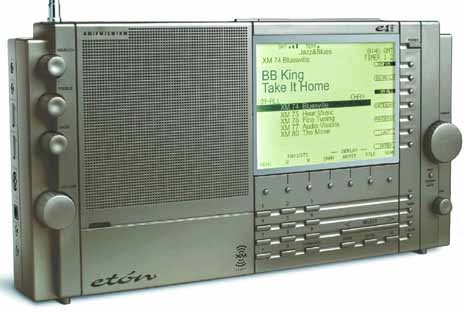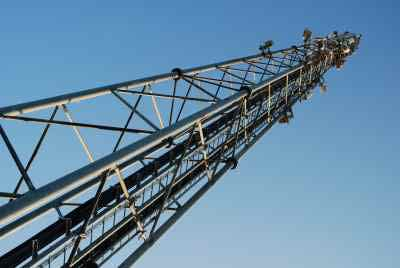
 Is Radio
Dead?
Is Radio
Dead?Saturday 10/13/2012 11:45:20 (PT) Print
Many staples of old media are
beginning to crumble from these new threats, such as the newspaper
business and music industry. Typical corporate mentality and greed kept
a huge number of media powers behind the digital revolution, as things
changed at the turn of the century. The radio business was one of those
entities, who didn't quite understand the threat, until it was at their
front door.
Now to be quite honest, many of
those new choices did tap into the huge audiences that radio enjoyed in
its heyday, but no nail was found. When FM radio began turning the tide
of listeners from AM, once again many predicted the death of AM radio.
Today, some of the most listened to radio stations in the U.S. are on
AM, such as WINS/New York, WGN/Chicago, or KGO/San Francisco.
Yes, it is also true that AM is
no longer dominant, and listeners continue to go to other sources other
than just FM. However, in times of recession, most folks will shift
towards traditional free services such as broadcast TV and radio. So,
even though the audience is shrinking, radio is still an important and
reliable medium.

Meanwhile, the global economy shifted into a recession, with automobile sales down and consumers cutting their budgets, the luxury of satellite radio had lost its charm. However, in the shadows of the satellite radio revolution, broadcast radio was preparing to comeback on an even digital platform, with the arrival of HD Radio.
What is HD Radio? Your favorite local station remains in the same place on the radio dial, but when you have a new digital HD Radio receiver, your AM sounds like FM and FM sounds like CDs. In addition, the wireless data feature enables text information - titles, artists, local weather or local traffic alerts - to be broadcast directly to your receivers display screen.
Not only do the devices provide more local radio channels, but the additional services are provided by local broadcasters. HD Radio even gives consumers access to other media platforms, such as iTunes tagging, where you can download an on-air song to your iPod.
These units are also picking up steam as automobile makers are including them in new models, and standalone versions. This new concept takes a bite out of the satellite radio edge, and brings things back into the hands of local broadcasters.
As we move forward into the technologies of the 21st century, we must not over look the WiFi revolution, which has quietly spread across the globe. Providing wireless internet, mobile, and broadcasting to a whole new level.
New WiFi units are now providing thousands of online radio stations, which include broadcast and internet-only channels. These new products also offer hybrid technology which includes fully integrated iPod/MP3 functionality.
In the new landscape, you can listen to your local radio station on-air, via internet and mobile phone devices. However, the digital platform choices offer more than just the standard AM/FM delivery. Some new audio products don't even include broadcast radio choices, as they only have CD and MP3/iPod capability.

The challenges for radio broadcasters in the 21st century is beyond anything one industry could face head on so quickly. It is an exciting time to have so many choices, and the freedom of not being held down by one product or source for consumers.
Radio execs saw these forces heading their way, but as more corporations gobbled up properties across the U.S... greed took control! Local radio talent was replaced by mindless generic and syndicated formats. Every town had a Jack, Alice or Bob, mindlessly playing the same crap over and over again, followed by 10 minute commercial breaks!
Oh really? How long could this have gone on for? If listeners have a better choice, they will go for it! So now look where we are, broadcast radio is no longer the only game in town.
Bottom line, broadcast radio will not die, but will have to evolve and take its place next to other forms of media and audio choices. Local broadcasters will always be a factor, due to their delivery of customized information such as news, traffic, and weather for their communities, especially in rural areas.
Radio will have to get back to the basics to compete in today's digital environment, with more emphasis on the listeners needs, and less on just making a quick buck off of old 20th century technology.
-----------------------------------------------------------------------------------------------